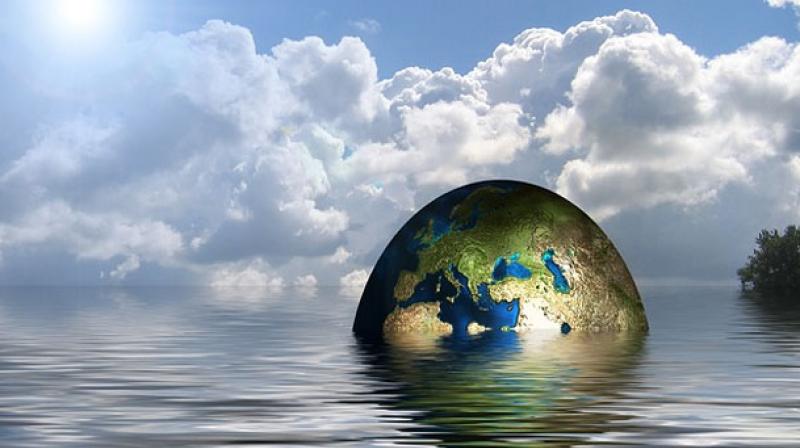Short-lived greenhouse gases cause centuries of sea-level rise

Boston: Warming from short-lived compounds - greenhouse gases such as methane and chlorofluorocarbons - can cause sea levels to rise for hundreds of years after the pollutants have been cleared from the atmosphere, a new study
has warned.
Even if there comes a day when the world completely stops emitting greenhouse gases into the atmosphere, coastal regions and island nations will continue to experience rising sea levels for centuries afterward, according to researchers at
Massachusetts Institute of Technology (MIT) and Simon Fraser University in the US. The greenhouse gases such as methane, chlorofluorocarbons or hydrofluorocarbons linger in the atmosphere for just a year to a few decades.
Recent studies by many groups have shown that even if human-caused emissions of carbon dioxide were to stop entirely, their associated atmospheric warming and sea-level rise would continue for more than 1,000 years. These effects - essentially irreversible on human timescales - are due in part to carbon dioxide's residence time.
The greenhouse gas can stay in the atmosphere for centuries after it is been emitted from smokestacks and tailpipes. In contrast to carbon dioxide, other greenhouse gases such as methane and chlorofluorocarbons have much shorter
lifetimes. However, previous studies have not specified what their long-term effects may be on sea-level rise.
To answer this question, Susan Solomon, Professor at MIT, and colleagues explored a number of climate scenarios using an Earth Systems Model of Intermediate Complexity (EMIC), a computationally efficient climate model that simulates ocean and atmospheric circulation to project climate changes over decades, centuries and millenia.
With the model, the team calculated both the average global temperature and sea-level rise, in response to anthropogenic emissions of carbon dioxide, methane, chlorofluorocarbons and hydrofluorocarbons. The researchers' estimates for carbon dioxide agreed with other predictions and showed that, even if the world were to stop emitting carbon dioxide starting in 2050, up to 50 per cent of the gas would remain in the atmosphere more than 750 years afterward.
Even after carbon dioxide emissions cease, sea-level rise should continue to increase, measuring twice the level of 2050 estimates for 100 years and four times that value for another 500 years. The reason, Solomon said, is due to "ocean inertia", as the world warms due to greenhouse gases - carbon dioxide
included - waters heat up and expand causing sea levels to rise.
Removing the extra ocean heat caused by even short-lived gases and consequently lowering sea levels, is an extremely slow process. The study was published in the journal Proceedings of the National Academy of Sciences.

